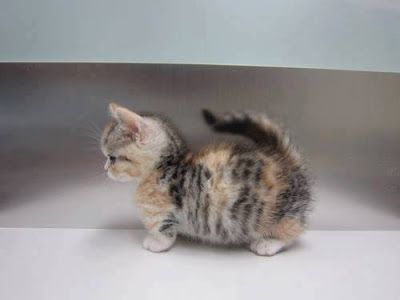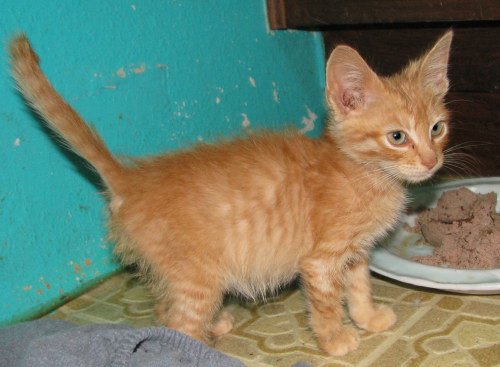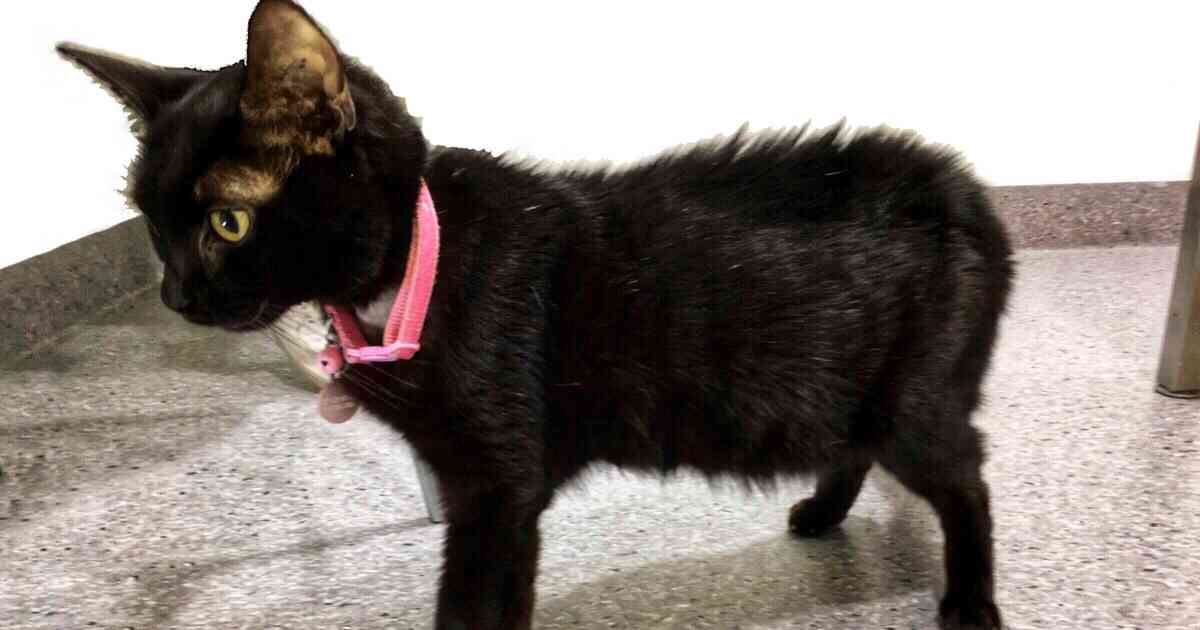If you’re a feline parent, you may have noticed that kittens often have bulging stomachs.
Is this normal, or does it indicate a health issue?
Well, it could go either way—some health conditions may result in a bulging stomach but it is also normal for your kitty to have a big stomach.
So, how can you tell the difference? That’s what we will help you to know in this post. So, let’s jump right in!
A Normal Kitten Belly
A normal kitten’s belly should be slightly rounded and not too concave.
If you can feel your kitten’s ribs, they may be too thin. Kittens should have a small waist when viewed from above.
So, while a kitten can have a big belly, a bloated or bulged belly is abnormal and should be checked out by a vet.
Why Is My Kitten’s Belly Bloated?
There are several potential causes for a swollen stomach in kittens, including:
A. Ingesting foreign objects (such as string or yarn)
If your cat ingests something like string or yarn, it can obstruct its intestines. This can lead to a build-up of gas and fluid in the stomach, causing it to swell.
B. Eating too much too fast
If your kitten eats too much too quickly, he may develop what’s called “gastric dilation volvulus” (GDV). This occurs when the stomach fills with air and twists, trapping the air inside. GDV can be fatal if not treated immediately.
C. Infectious diseases
Certain infectious diseases, such as feline panleukopenia or feline infectious peritonitis, can cause a kitten’s stomach to swell.
D. Parasites (such as worms or fleas)
If your kitten has parasites, such as worms or fleas, it can cause their stomach to swell. This is why it’s important to keep them up to date on their vaccinations and dewormings.
E. Cancerous tumors
In some cases, a swollen stomach in a kitten may be due to cancer. If you notice any other symptoms along with the swelling (such as weight loss, lethargy, or vomiting), then there is a possibility your kitten has tumorous cancer.
F. Constipation
If your kitten is constipated, it can cause his stomach to swell. This is because they are having trouble passing stool, which can build up and cause gas and fluid retention in the stomach.
Should I Be Worried About My Kitten’s Big Stomach?

In most cases, a big stomach in a kitten is nothing to worry about. It’s actually quite normal and is often the result of them growing at a rapid pace.
Their stomachs simply haven’t had time to catch up with their growing bodies yet.
However, there are some cases where a bulging stomach in a kitten can be a cause for concern.
If your kitten’s abdomen is hard and bloated, it could be indicative of a gastrointestinal blockage or infection.
If you notice any other signs of illness, such as vomiting or diarrhea, then it’s best to take them to the vet right away.
Is It Normal For A Kitten To Have A Potbelly?
No, it is not normal for a kitten to have a potbelly. If your kitten has a potbelly, it could be a sign of an underlying health condition and you should take them to the vet for an examination.
If you’re unsure why your kitten has a potbelly, the best course of action is to take them to the vet for an examination. They will be able to determine the cause of the problem and provide the appropriate treatment.
In most cases, a potbelly is not a serious condition and can be easily resolved with medical intervention.
However, if left untreated, it could lead to more serious health problems down the road.
How Should A Kitten’s Belly Feel?
A kitten’s belly should feel soft and round. If you notice any lumps, bumps, or sores, something is not right with your feline friend.
Some other signs that something may be wrong with your kitten’s belly include vomiting, diarrhea, loss of appetite, and lethargy.
If you notice any of these signs, contact your veterinarian immediately.
How Can I Tell If My Cat’s Stomach Is Swollen?

One way to tell if your cat’s stomach is swollen is to look at them from above.
If their belly looks larger than normal or has a noticeable bulge, it could be a sign of bloating.
Another way to tell if your cat’s stomach is bloated is by feeling it. Gently palpate (or press) around their abdomen and see if any areas feel hard or rigid.
This could also be a sign of constipation, so if you’re unsure, it’s always best to consult with your veterinarian.
Another way to check if your kitten’s stomach is swollen is checking to see if your kitten’s abdomen is noticeably larger than normal.
You should also feel for any lumps or bumps on the surface of the stomach. If you notice any of these signs, there is a good chance the kitty is bloated.
Can I Treat A Swollen Stomach At Home?
Treating a swollen stomach at home is usually not recommended, as there are many potential causes of this condition that need to be evaluated by a veterinarian.
However, if you can get your kitten to the vet right away, they may be able to provide some relief with medications or other treatments.
In severe cases, surgery may be necessary to remove an obstruction or correct a congenital defect.
Regardless of the treatment that is required, it’s important to follow your veterinarian’s instructions carefully to ensure a full recovery.
In the meantime, you can try to soothe your kitten’s tummy by offering small amounts of a bland diet.
You should also avoid giving your kitten any milk or dairy products, as these can make the stomach swelling worse.
Related Post: Bloated Kitten Home Remedies
Conclusion
If you notice that your cat’s belly is swollen, it’s important to take them to the vet as soon as possible so they can determine the cause and provide treatment accordingly.
In some cases, stomach swelling can be a sign of a serious condition like gastric dilatation-volvulus (GDV), so it’s best not to wait and see if the problem resolves on its own.
If you’re not sure whether or not your cat’s stomach is swollen, but they are acting abnormally in any way, it’s always best to err on the side of caution and take them to the vet for an examination.
Better safe than sorry!

Hi! I am Eleanor Price. I started this website after my cat, Louie, almost died from a case of botulism (a type of food poisoning often caused by bacteria that grow on food items). Turned out that my cat’s diet was the problem. I have made it my duty to provide the best information and recommendations about everything cat lovers need to know about their felines’ health and wellbeing. My goal is to find the most informative content on anything feline-related and share it with fellow hardworking kitty lovers.

